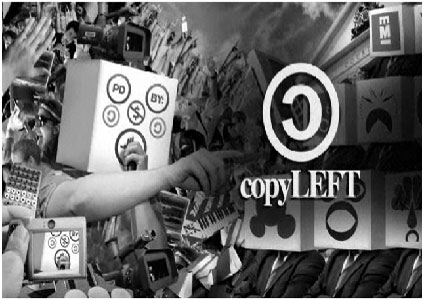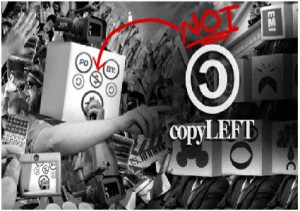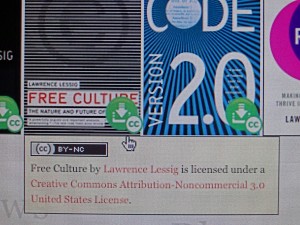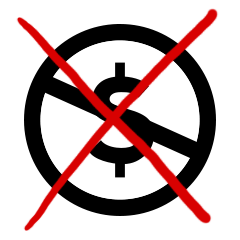from the free-is-not-a-business-model dept
Jim Harper points us to a blog post by a guy named Richard Muscat, supposedly
debunking the problems of "free" as it comes to business models. Frankly his post is pretty weak. It rehashes a bunch of arguments that have been debunked plenty of times before, but since we keep seeing these arguments made, I figured I'd use Muscat's piece to explore
why it is that those who don't understand the concept of free are condemned to make such bad arguments against it.
The key problem, it seems, is that people who dislike the concept of free have this weird issue where they
stop thinking once the big zero enters the equation. In the past, I've pointed out that it seems like some brains have a
divide by zero error problem, where, once they see free as a part of the business model, they stop paying attention to the rest of the business model and just focus on the free part. But here's the thing, no one is claiming that "free" is the business model. People who discuss the value of free have
always been talking about how you use it
as a part of the business model. So arguing that "free" is not a business model is a strawman. No one is claiming that free, by itself, is a business model because that makes no sense. But Muscat takes things even further, by claiming that it's so bad that it's "harmful":
My contention is that “Free” as described and used in many contemporary web-based businesses is a non-business model that is not only broken, but actively harmful to entrepreneurship. Free rarely works, and all the times that it doesn’t, it undermines entrepreneurial creativity, destroys market value, delivers an inferior user experience and pumps hot air into financial bubbles.
Don't hold back.
Free does not push you to create something evocative that users and customers are willing to commit to in the long term.
Free absconds on the entrepreneur-customer commitment: by asking for nothing you also promise nothing. Both parties can walk away because there is no relationship. On the other hand by asking for money (or some other form of commitment), however large or small an amount, you create a self-imposed drive to produce creative and valuable products because not doing so would mean letting somebody down.
Because no one has committed to Google long-term. And before that no one committed to radio. Or broadcast TV. Huh? Having a product that is "free to the consumer" does not mean people won't commit to it at all. In fact, if you put together a smart business model, it could be the exact opposite. All of the examples here involve cases where companies use free to bring in people and then sell that attention to advertisers. In those cases, they very much have the incentive to create something that makes people commit, or they don't have the attention to sell. It's only if you stop at the zero and don't follow through that you could possibly claim that business models that use free don't get customers to commit.
As the title suggests, the book argues that software pricing shouldn’t be decided randomly. There are three big reasons for not doing this: first, you might be missing out on revenue; second, your product price says something about the quality and intended audience of your product; third, your price also sets an expectation of how much effort has gone into production and how much value a customer should expect.
Not sure what that has to do with anything. I don't think anyone is suggesting that people randomly choose free as a price either. In fact, we've been quite careful to explain that the whole point of understanding
the economics of free is so that you can understand when it's appropriate to use free and when it's not. That many startups
don't understand when it's appropriate to use free is not a condemnation of free as a price. It's a condemnation of people not understanding the larger economics and how to put together a good business model.
Choosing Free as your product price runs the risk of attracting entirely the wrong audience for your product or service.
Sure. But that's only an issue if you fail to plan out the rest of your business model. The implicit assumption that Muscat makes here, which is incorrect, is that the whole point of free is to attract an audience which might buy.
Although you may get tens of thousands of users, it is probable that those users are unlikely to ever consider paying you because by definition you have attracted people who are looking for free stuff. Reversing this decision later can be extremely painful: you will piss off your existing user base, potentially generating very negative publicity and you might need to start from scratch in terms of looking for the right audience.
Right, but that's not a criticism of "free," that's a criticism of a
bad business model built around the idea that free is just a trick to get people to upgrade. If that's your business model, then he's right that it could be a bad business model (though some companies, such as Evernote, have found that it works for them). But that's not a problem with "free." That's a problem with the rest of the business model.
At some point or another you will realise that you do need to create a revenue stream. If you end up in the situation I just described above, i.e. encumbered with an audience of people unwilling to pay for what you’re providing, you will be faced with a dilemma: start over and risk the bad press or try to squeeze some pennies out of a reluctant user base.
Again we see the divide by zero issue, in which he implicitly assumes that free is implemented in place of a complete business model. That's not the fault of "free." That's the fault of a bad business model.
The latter is a slippery slidey slope that leads towards intrusive in-app advertising, pop-ups, link-baiting, shady affiliate marketing, email spam and a total lack of focus on user experience.
Indeed. Those would be bad decisions built on a bad business model. I'm not sure what that has to do with "free" however.
The idea that things can be free is behind a lot of financial bubbles. In the late nineties we thought that we could get distribution and infrastructure for free and we got the dot com bubble. A couple of years ago we thought we could get loans and bank credit for free and we got the property bubble. In both cases we left something very important out of the equation: delivery costs in the former and ability to repay mortgages in the latter.
That's an interesting and totally incorrect bit of historical revisionism. First, the dot-com bubble was a result of investors (and many dot-coms, themselves) having no real understanding of web-based business models. Early dot-com successes (some real, some imaginary) created a rush of investors eager to throw money at any company offering something on the web -- without ever looking at whether they even
had a business model. And I've never seen a loan or credit -- or internet infrastructure, for that matter -- that was "free." Were there some companies that went to extremes during both bubbles? Yes. But there was no direct connection to "free."
If you’re putting together a business plan or a slide deck that claims there will be an initial period of “short-term loss” while you establish a user base which you will then monetise, just remember that that is exactly what most of the pre-2000 dot com business plans were like.
And, um, it was also the basic business plan of all sorts of successful businesses going back through history. It was clearly the plan of Google, Amazon, Facebook and Twitter, for example. So what? If you have a smart business model behind it, it can work. If you don't, it will fail. Claiming that it is inherently flawed is wrong. Also, it's the very basis of pretty much the entire venture capital industry. The whole reason why startups need venture capital is to fund that initial period in which there are short-term losses. It's called
investing in growth. Intel had to build fabs. Apple had to build computers. Those involved "short-term losses" to build the product. That's how these things generally work.
Almost never. Somebody always pays. If healthcare is free, your taxes pay for it. If the flight is free, the extras aren’t. If the search is free, the advertiser is paying.
Um. That's the
whole point of using free as a
part of a business model. Of course someone pays. That's what we're describing here. It seems totally ridiculous to go on for paragraph after paragraph discussing how free is awful because no one pays... and then, at the very end, to throw in a "but someone pays!" Why didn't he consider those points earlier in the article?
The only time when Free can really work for you is if you set your sights on having a specific outcome: acquisition.
Yeah, just like Google. And Facebook. And Twitter. Good grief.
Look, if you understand the economics behind digital goods, you can quickly learn that there are places where free makes sense. It makes sense when, if you don't go free, your competitors will and you'll lose all of your business. But no one has ever suggested that free, by itself, is a business model and if your debunking of "free" is based on that, it just means you've stopped your analysis too soon. Free is an important part of many, many, many business models these days and that's been true for many years as well. Free isn't bad. It can be used badly, but to condemn it, based on that alone, suggests someone hasn't thought things through.
Filed Under: business models, economics, free







